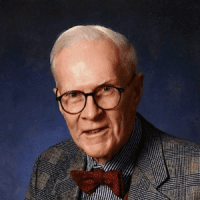Members will be relieved to note that Perspectives is not its usually weighty self this month. Editorially, January is always the “month after”—too early for a report on the December annual meeting in New York City, light on job vacancy listings, and after all of the fall activities have been reported. We expect to save at least one or two good-sized, pulpwood trees as a result.
The principal events in November of interest to AHA members were the annual consultation of the Committee on Committees (which recommends to the Council appointees for all the standing, prize, and ad hoc committees of the Association), the meeting of the Joint Committee of Historians and Archivists in Washington, and the oral argument on the expedited Justice Department appeal in our (and others) lawsuit to prevent White House destruction of electronic records with the tacit consent of the National Archives. This event is reported in Page Miller’s column of NCC News (p. 7) and should be read with interest—it is not every year that the good, gray AHA sues the President of the United States!
The Committee on Committees held a two-hour telephone conference on November 13 to fill several dozen upcoming vacancies in our committee structure. The Committee works from a carefully prepared agenda-book, which lists all vacancies due the end of the year and the names and vitas of candidates volunteering or suggested by colleagues after the Perspectives appeal (September, p. 8) for suggestions. The Committee on Committees is established by our constitution and is composed of members elected by the membership at large for three-year terms, with one member rotating off each year. As an elected committee, it ranks with the Council, the three division committees, and the Nominating Committee as one of our principal agencies of governance. By immutable custom it is chaired by the President-elect, who, after all, will have to live with its results! Members should be grateful to the committee members for the careful study and painstaking consideration they devote to this vital task, to represent fairly as many of our constituencies as possible, obtain geographic and gender balance, and find outstanding specialists in many fields who are both members and willing to serve.
The Joint Committee of Historians and Archivists, which met November 18–19, is made up of representatives of the Organization of American Historians, the Society of American Archivists, and the AHA. It meets twice a year in Washington and serves as the principal liaison contact between the two intertwined professions and as our informal “oversight” body vis-a-vis the National Archives and Records Administration. The latter function is particularly useful, since the old advisory committee of historians went out of existence when NARA was created as an independent agency in 1984. Happily, NARA is content to work closely with the Joint Committee, notwithstanding its extra-legal status, accepting it as a best friend if sometimes a severe critic.
The Joint Committee’s agenda included the usual reports on current activities as well as lengthy discussion of strategies for addressing two particularly pressing problems, the absence of history from archival training and the inattention to archival research methods in history training. The committee then welcomed National Archives staff for a briefing on the Archival Information System now under development at NARA and demonstration, using a prototype, of how it will facilitate researchers’ access to information about the Archives’ vast holdings. The system will be phased in and will not be fully in place until the middle of the decade. The committee also heard a progress report from Ann D. Gordon, project director for the ACLS-NHPRC study of the use of historical documents in both research and teaching. Mention should be made also of the Association’s joyful participation in ceremonies at the beginning of November to install as President of Lafayette College former Council member (1982–84) Robert I. Rotberg.

